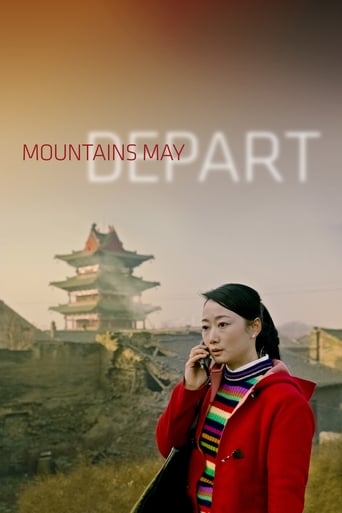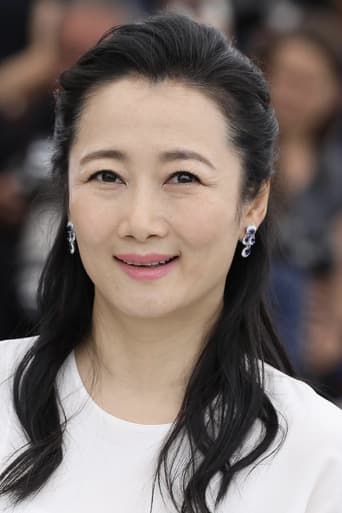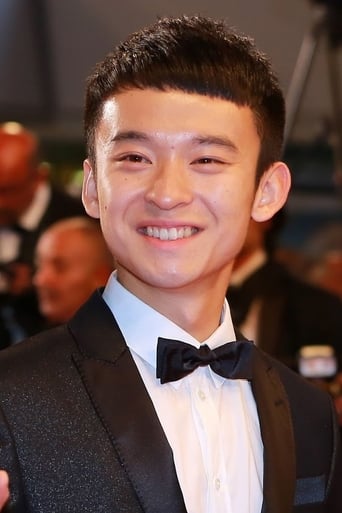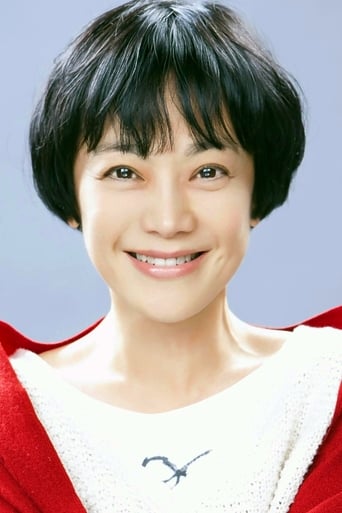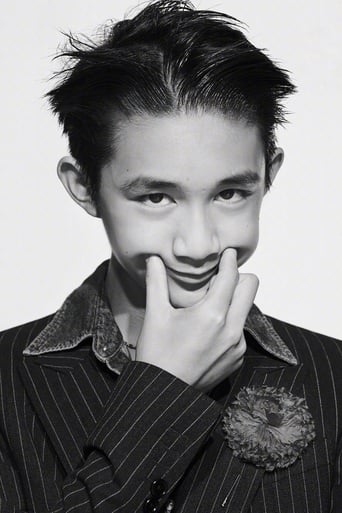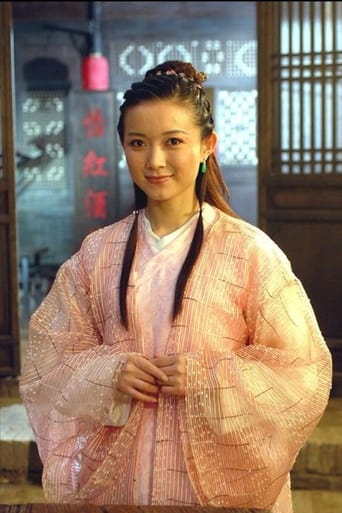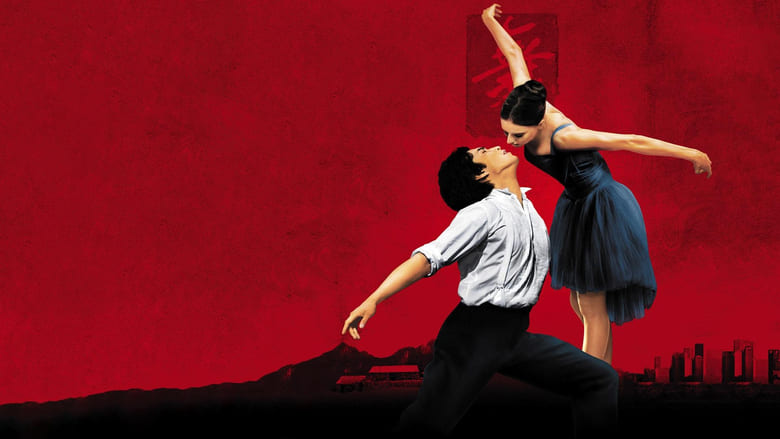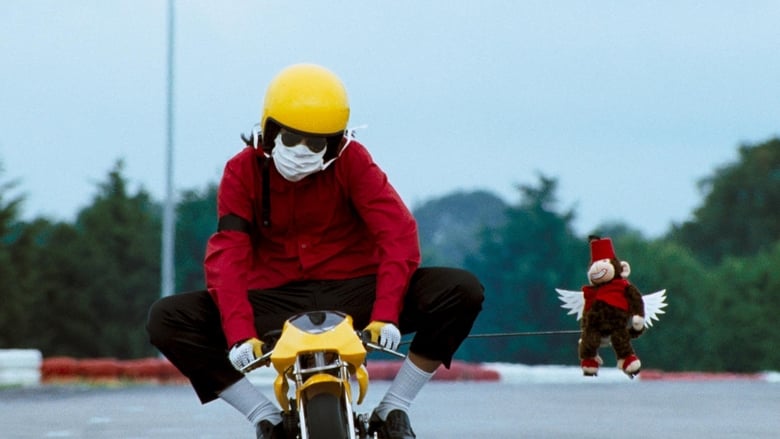The life of Tao, and those close to her, is explored in three different time periods: 1999, 2014, and 2025.


Reviews
The thoughtful critiques of other reviewers pretty much say it all. But I did want to add that Zhangke fans may feel disappointed by this effort. His prior films like The World and Still Life have an a lyrical quality that for me is subtle and moving, even when I didn't understand exactly what was going on. This film is more pedestrian. The first two segments are enjoyable but nothing unusual, even at times a bit mundane. The third and final segment is like the last season of Gilmore Girls or recent episodes of Modern Family, ie, in spots still intriguing but overall disappointing. If you're new to Zhangke I would try some of his other films first to get a better sense of what makes this director so special.
Read full review here: http://bit.ly/2eo9O3dSomewhere in Mountains May Depart there's a quote I can't recall that says, effectively, you can't spend your entire life with any one other person. While this may not be categorically true, if you think through the eras of a life - as a baby, toddler, childhood, teenager, young adult, middle-age, and so on - it is unlikely that any one person will be a part of your daily interactions throughout. Considering that, it can be true that the impact someone has on your life may be greater than the portion of time you spend with them. Through a handful of characters whose lives intertwine over three distinct periods of time - 1999, 2014, & 2025 - Chinese-born director Jia Zhangke explores and rejoices in the emotional resonance of our relationships in Mountains May Depart.The three epochs of the film are each brilliantly conceived aesthetically to provide a subtle atmospheric guide to the scenes they are home to within the story. The boxy, more realistic and grainy style of the 1999 sequence - designed to match actual documentary footage the director and his cinematographer shot from the same period - is a little more raw, like the youthful emotions the characters experience in their mid-20's. Here we have a love triangle where our central character, Tao, is confronted with a choice between the brash, rich, and charming Jinsheng and the humble coal-miner Liangzi. The 2014 section is a wider aspect ratio with a higher quality, yet natural visual reflecting Tao's middle-aged experience. Life's lessons have provided a bit more perspective and the muted colors are like some of her dreams that haven't worked out as planned. She's divorced and facing a continental estrangement from her 7-year old son. A fully widescreen format with an artificial, over-developed HD quality evokes a 2025 that is equally more advanced and more separated from the past. This is the backdrop as Tao's son Dollar has to learn why he feels unsettled in a life he's done little to create for himself. Here, in a bit of an Oedipal twist, he develops a relationship with a surrogate mother of sorts that reminds the youth, now so far removed from his past that he can't even speak his first language, where he came from. For the first time of his own volition he makes the choice to search and reach backwards so that he can progress and grow. It hurts. You don't know if he achieves what he's reaching for but the important thing is that he chooses to do it.Zhangke uses artifacts from his own life, from pop-culture, and of a more universal nature to serve as totems for emotional relationships that bridge the difference timelines. In 1999 Tao is young and bright, greeting each moment with a smile. She rejoices in music and food that bring her joy. Later in 2014 she faces losing everyone that is or has been important to her and these things become tools for holding on to what she's lost. A divorce left her with lots of money and a lost custody battle for her young son, whose father is abandoning all remnants of their culture and taking him to Australia. After panicking, Tao resolves to make the most impact she can on the impressionable and hungry heart of her little boy. She prepares several tokens for him to keep close through taste, touch, sound and feeling, as they will become further away than ever. The keys she gives Dollar are based on the director's own mother doing the same for him. It's possible she may never know the impact they have in his life but they become figuratively the keys to his unlocking his own freedom (see what I did there??) as he comes of age in 2025. These tokens used throughout the film, and especially two key pieces of music and the light-touch score from Yoshihiro Hanno, immediately have the same effect on the viewer each time they are re-introduced to signify a key relationship and emotion whose origin may be otherwise untraceable to the characters.
Jia Zhangke is a prominent figure in contemporary world cinema as one of the leading directors of the so-called sixth generation of Chinese filmmakers. He has become known for his personal films which discuss social transition in modern China through the experience of the individual. Zhangke's latest film "Mountains May Depart" (2015) continues this in an essential, if not exactly surprising, fashion. Like "A Touch of Sin" (2013) and "Still Life" (2006), the film has an episodic structure, but narrative is much more conventional and straight-forward. While there is a lot of change in narrative focalization, "Mountains May Depart" is strongly structured around the protagonist Tao, played by the director's muse Tao Zhao, whose life unfolds before us in three distinct periods: 1999, 2014, and 2025. Thus Zhangke takes a look behind, reflects on the present, and anticipates the future of the Chinese society.As a social film, "Mountains May Depart" studies the individual in the grip of a changing world. It tackles the difficulty of communication to the extent where parents need interpreters to talk to their children. Globalization, capitalism, and the new freedom of the 21st century do not offer comfort or help, but rather appear as rootlessness, alienation, and solitude in the lives of people. All of Zhangke's films are, more or less, about change, but in "Mountains May Depart" this theme manifests itself clearly on the level of style and narrative. Zhangke's narrative includes a modernist combination of perspectives, creating a simple complexity which is never disorienting, as different characters are followed throughout the film, enhancing a pluralist sense of multitude and change. While Zhangke's style has been known as consisting of long takes and complex camera movement, "Mountains May Depart" presents a greater variety in style. Zhangke's camera keeps a short distance to the characters, mainly on the level of the medium shot, but there are also memorable establishing extreme long shots which highlight the minuteness of the individual in a vast landscape. The camera does move a lot, though perhaps subtly, but the editing rhythm is not strikingly slow. One of the most conspicuous stylistic elements of the film is the changing aspect ratio. The first episode is shot in the letterbox 4:3 ratio, the second in the contemporary standard 16:9, and the last in the widescreen format 2.35:1. This constant widening of the aspect ratio of the image reflects not only the globalization of the Chinese society and the characters moving outside of their homeland but also a more primordial experience of change that is constant in human existence. It embraces the Heraclitean flux. Thus Zhangke poeticizes the experience of change in a cinematic fashion; that is to say, he utilizes cinematic means to articulate a profound, existential experience of change. This he does by combining features that change (the aspect ratio, the focalizing perspective) with perpetual elements such as recurring songs ("Go West" by Pet Shop Boys), dramatic motifs (the dog, the keys), and the intimate cinematography. Like the characters, Zhangke's style and narrative seem to be searching for a red line, something that gives meaning and coherence in a world of change. While "Mountains May Depart" might feel like a minor work in Zhange's oeuvre, it does redeem itself for a patient spectator. Like Zhangke's other films, it too looks at the contemporary Chinese society, the inevitable transition from the perspective of the individual, and modern identity in an ever-changing world. Although there certainly is sadness to all this, Zhangke's film is also quite optimistic and bright in comparison to his previous, darker film "A Touch of Sin". Mountains may depart -- the very borders of the image may broaden -- but something will endure. It is, in fact, as if higher levels of discourse were trying to find unity amidst variety: something that remains in the perpetual flux of change.
'Mountains May Depart' does make audiences aware of its 131-minute runtime by a ostensibly prolonged third act that, despite possibly being in roughly equal length to its previous counterparts, trudges while following Dollar almost exclusively. As opposed to Tao, who's arguably the protagonist, I admittedly longed for more of Zhao's vigorously human display, breaking down into tears just as easily as striding with poise and zeal. In the acclaimed director's 7th feature film, Zhangke Jia has attributed epic scale and profoundly relevant ideas to the classic, albeit modernly exhausted, love triangle conflict. Through subtle use of tech, Jia supplies a new pair of eyes – proving it's not what we view, but how we view the world, cultures and people around us.FULL REVIEW HERE: http://indieadam.com/2015/09/17/mountains-may-depart-review- indieadam-tiff-2015/
